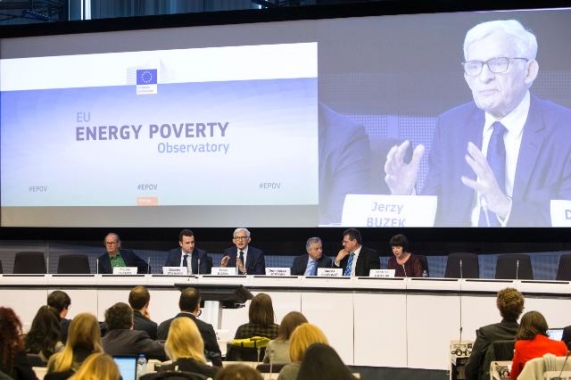The European Energy Poverty Observatory goes online
Towards an evidence-based fight against an alarming phenomenon
Brussels, 5 February 2018 | Published in Energy
In the end of January, the European Energy Poverty Observatory was officially launched. The Observatory is a new initiative by the European Commission as a 40-month European project aimed at engendering transformational change in knowledge about the extent of energy poverty in Europe, and measures to combat it.
The creation of an Energy Poverty Observatory is part of the European Commission’s policy efforts to address energy poverty across EU countries. It aims in particular to:
- Improve transparency by bringing together the disparate sources of data and knowledge that exist in varying degrees across the whole of the EU;
- Provide a user-friendly and open-access resource that will promote public engagement as well as informed decision making by local, national and EU-level decision makers;
- Enable networking and facilitate knowledge sharing and co-production among Member States and relevant stakeholders;
- Disseminate information and organise outreach work that will connect and build on existing pan-European and Member State initiatives in the energy poverty domain;
- Provide technical assistance to the widest possible range of interested parties, based on a holistic approach to understanding and addressing energy poverty in the European Union.
The EU Energy Poverty Observatory (EPOV) has been developed by a consortium of 13 organisations, including universities, think tanks, and the business sector. An Advisory Board comprising over 70 leading stakeholders from across Europe also supports EPOV. The University of Manchester leads the consortium: Dr Harriet Thomson acts as Project Manager, while Professor Stefan Bouzarovski is Chair of the Steering Committee.
The website is now in a starting phase, and additional features/indicators could be added at a later stage.
Housing Europe is one of the supporting partners and in this capacity is responsible for outreach and dissemination activities, producing a case study on a successful energy poverty-related project and finally to organizing and hosting a specialist workshop in Brussels.